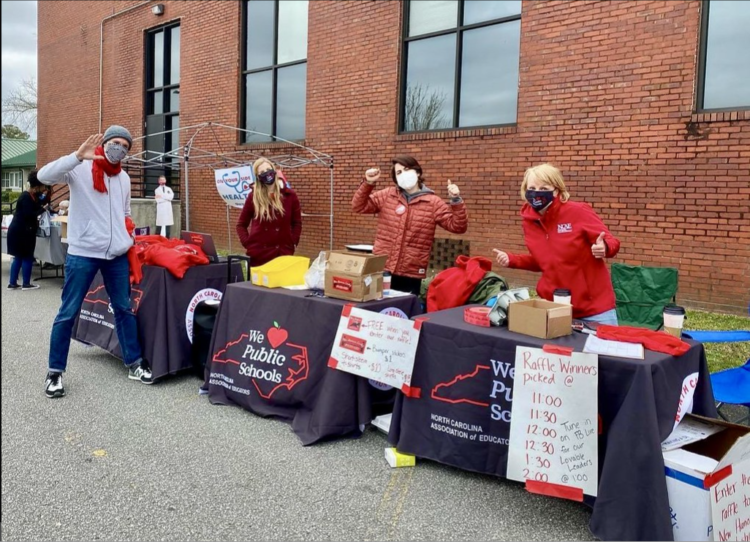Organize 2020 is the “social justice caucus” of the North Carolina Association of Educators (NCAE), the state’s National Education Association affiliate. Last year, 14 members of Organize 2020 were arrested in downtown Raleigh for sitting in the middle of the road to protest education funding or something. Citizen journalist A.P. Dillon has chronicled their activities for years.
In an article published in the Peabody Journal of Education late last year, UNC-Chapel Hill doctoral student Mark Johnson discusses Organize 2020 and teacher union activity in North Carolina generally. Once you set aside all of the requisite academic jargon, “Organizing for North Carolina: Social Movement: Unionism in a Southern State” is a pretty interesting piece.
Here is what I learned:
- The author and Organize 2020 interviewees have no problem calling the NCAE a “union.” The author writes, “Related to this principal notion of reconstructing state politics, one of the main objectives of Organize 2020 has been to transform the culture of NCAE. The caucus members interviewed shared very similar opinions regarding the prior effectiveness of the union, which was typically branded as being overly conservative and ill-equipped for the task of leading an organized effort to resist the dismantling of public education.”
- Organize 2020 does not think much of their parent organization. “In the words of one informant: ‘[NCAE has traditionally] been viewed more like a club. We had liability protections, and we had benefits. For a long time, we had this little business card that would get you a free coffee or soda every day of the year at McDonald’s. People loved that. That was worth their whole membership dues.'”
- They want to go to war with Republicans. One Organize 2020 member commented, “Have you seen the Godfather? When Michael replaces Tom Hagan with his father and says, “We need a wartime consigliere”? Well, we need a war-time NCAE. We don’t have a war-time NCAE right now…. The structure of NCAE is not set up for the kind of fight that we’re in right now.”
- It’s about advancing the entire liberal agenda. According to an Organize 2020 member, “The concept of working with Organize 2020 that interested me was the idea that within educational organizing in North Carolina there is a potential to act as a leverage point for the entire progressive movement …. And I still believe that public schools are the centers of communities, and if we join forces around them, we have the chance to actually bring some leverage for serious change.”
- They realize that recruiting teachers is not easy… One member said, “Teachers are do-gooders. We’re rule-followers. You don’t want to get arrested.”
- … because teachers “have never stood up for anything in their entire lives!” They continued, “I would say teachers in North Carolina are like most Carolinians, largely …. They’re probably more socially conservative than teachers in many other states ….We’re working with Sunday school teachers! These are people who have never stood up for anything in their entire lives!”
- Organize 2020 teams with the PTA reps to create “anchor teams.” The author writes, “One such model was the strategic creation of school-level parent–teacher anchor teams, where Organize 2020 affiliated NCAE association representatives worked alongside trusted PTA representatives in order to build community support.”
- Their strategy is to start with a local angle and work their way up to the district, state, and federal levels. According to an Organize 2020 member, “[The anchor teams] start by organizing around a local issue, like, “we want more computers in our classroom,” or “we want to find out are there textbooks available in the county—because we don’t have textbooks.” Something that’s like a school-based issue. Then they identify something that is workable on a district-level, like maybe a district policy where we can kind of get their feet wet into doing basic activism: voter registration, speaking at school board meetings, county commissioners, or whatever. Then we start to weave this into like the state and federal fights for public education.”


